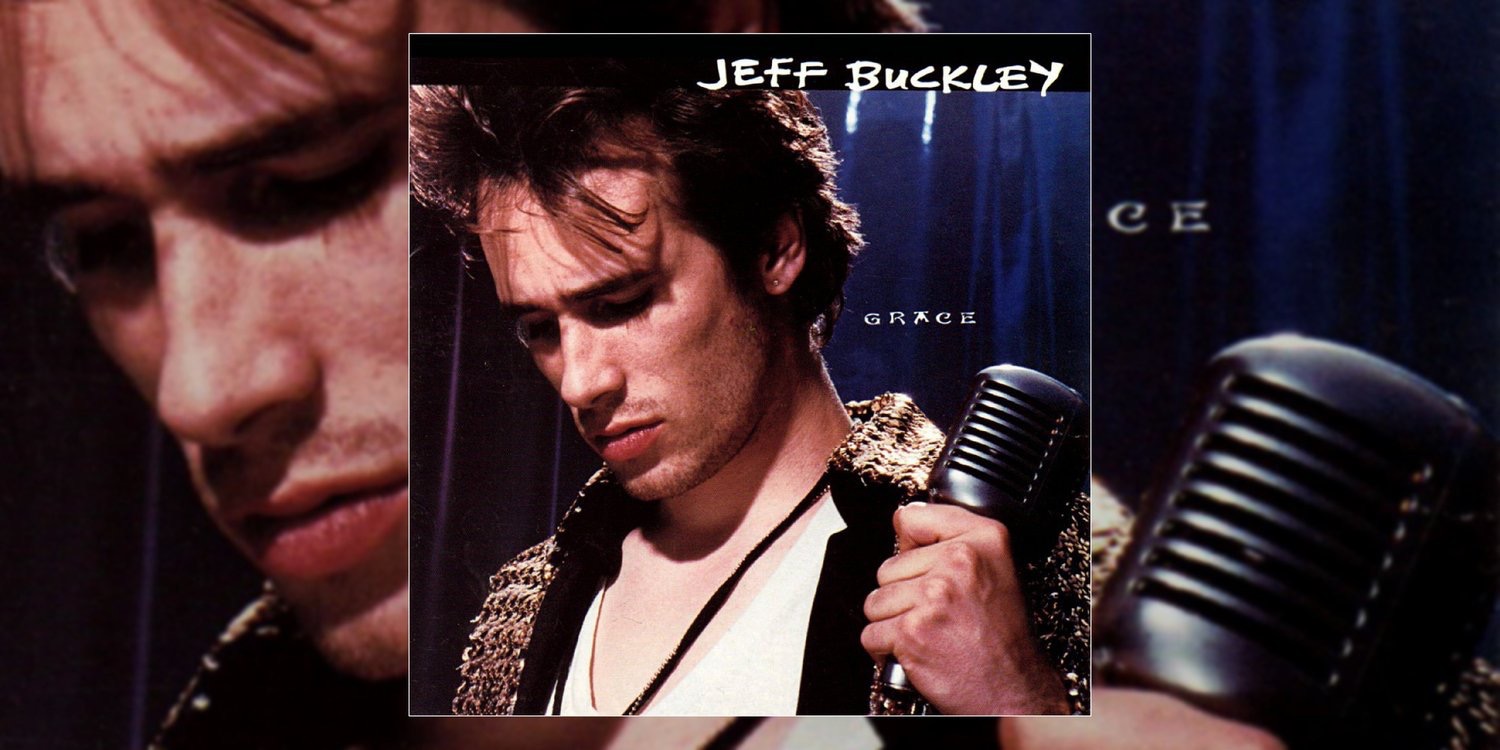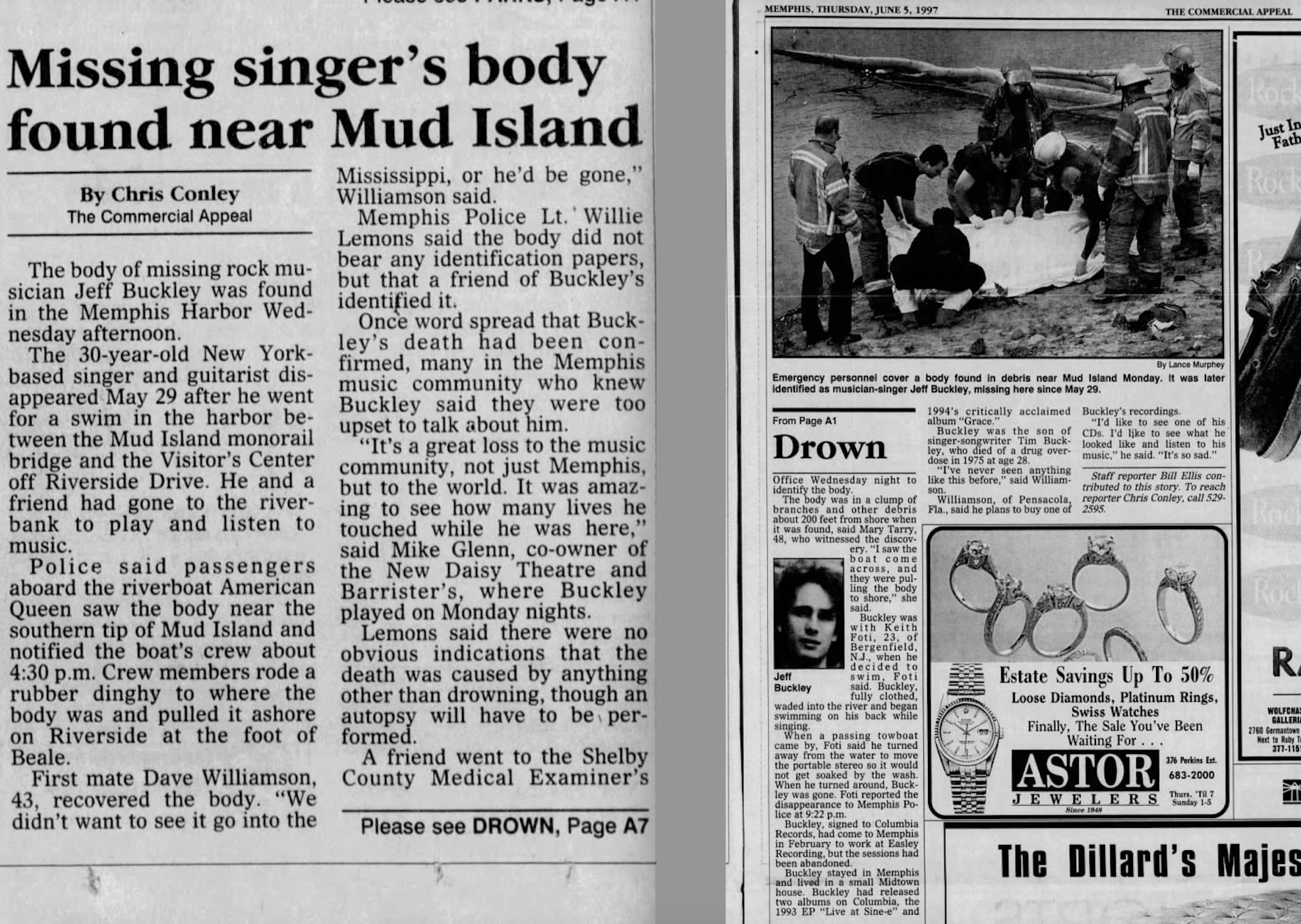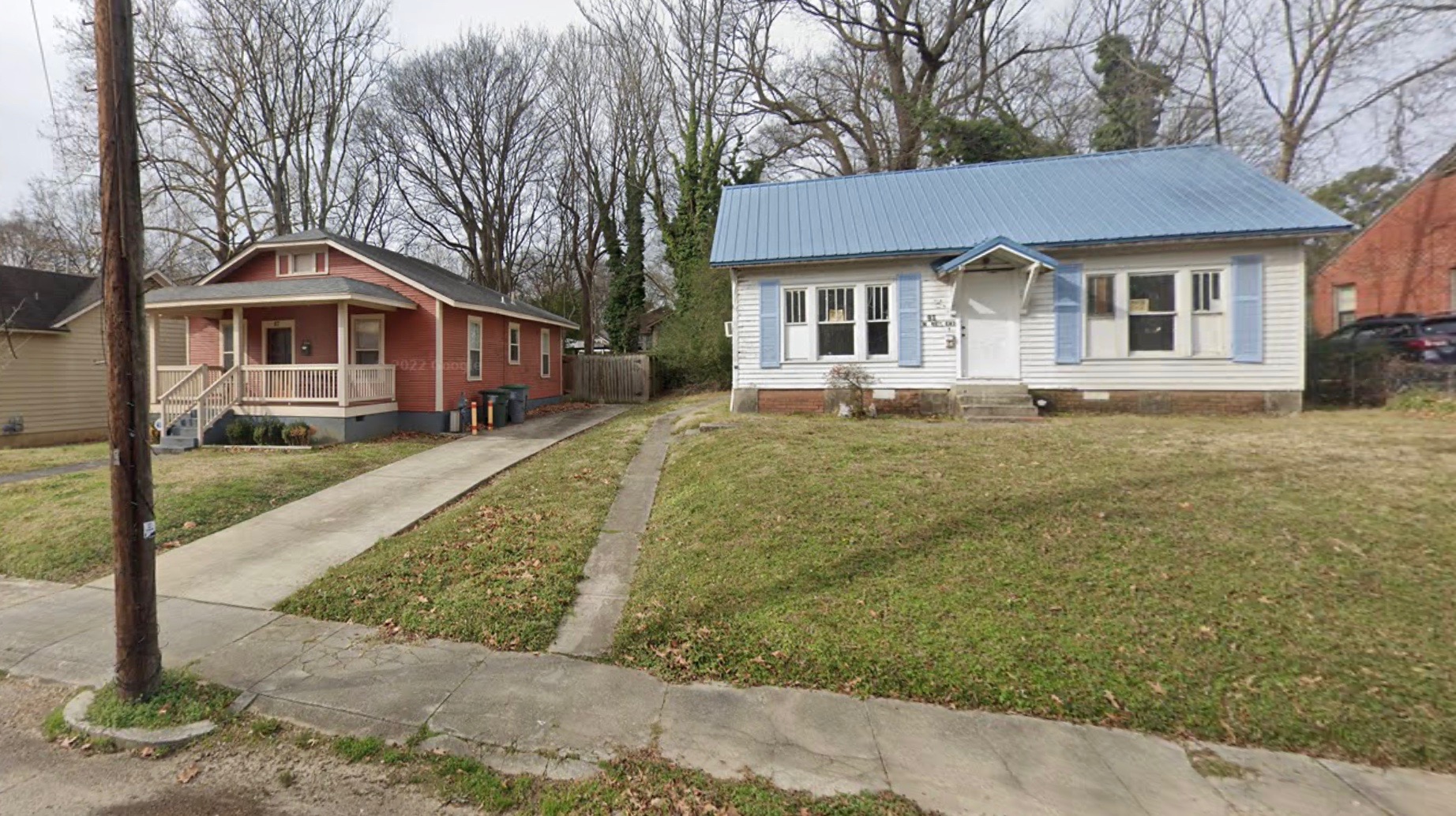
A Meditation on Jeff Buckley and His Masterpiece, ‘Grace’
I first heard Jeff Buckley the way most people do—through his haunting and mesmerizing cover of Leonard Cohen’s “Hallelujah.”
It was 1996 when my good friend Jason LaFerny, who knew I was a huge Cohen fan, played me Buckley’s version of “Hallelujah,” the sixth track from his 1994 debut album, “Grace.” His rendition breathed new life into the song. Its beauty overthrew me.
The next day, I rushed to Cats record store in Midtown Memphis and bought the CD. At home or in my car, I played it constantly, and after a few weeks of seemingly nonstop listening, “Grace” forged its way onto my list of all-time favorite albums, a distinction it still holds nearly three decades later.
Buckley died 27 years ago this month, on May 29, 1997. To commemorate the anniversary of his untimely and unfortunate death—he was only 30 when he accidentally drowned in Memphis—my latest for “A Fan’s Notes” pays tribute to the artist, his most famous work of art, and the connection I feel to both.
A secret chord
This blog isn’t an album review—you can find those at music publications like Rolling Stone, which ranked “Grace” as the 147th greatest album of all time—but let me share a few highlights of the music that made me a fan.
Buckley’s poetic lyrics, skilled guitar playing, and falsetto voice—oh, man, that voice—along with his talented backing band, make “Grace” one of those albums I can (and do) listen to on repeat.
Not only do I hear something different every time, but I also experience a range of emotions. Love and loss. Joy and pain. Longing and, well, more longing. The album invites the listener to mourn, meditate, move on, “keep good love from going wrong.” Equal parts solemn prayer and spirited passion, “Grace” has everything.
Because “Hallelujah” was my gateway to Buckley, let’s begin there. Many critics credit his version for helping “Hallelujah”—which Cohen released on his 1984 album, “Various Positions”—become a global phenomenon covered by countless musicians. The song revived Cohen’s career and kickstarted Buckley’s. Here’s the official video:
For a deeper dive into the song, including comparisons of Cohen’s and Buckley’s interpretations, the staggering number of verses Cohen never published, and more, I recommend Alan Light’s fantastic book “The Holy or the Broken.” (I am also planning a blog just about “Hallelujah,” including its best covers; you can guess who will hold the No. 1 spot.)
The Cohen cover is mind-blowing—reason enough to buy the album—but the seventh track, “Lover, You Should’ve Come Over,” is perhaps Buckley’s most heartfelt offering:
The song is pure poetry, and the selection below stands out as an emotional gut punch—the singer’s mournful refusal to let go and his ultimate acceptance of an inevitable, heartbreaking end.
It’s never over
My kingdom for a kiss upon her shoulder
It’s never over
All my riches for her smiles
When I’ve slept so soft against her
It’s never over
All my blood for the sweetness of her laughter
It’s never over
She’s the tear that hangs inside my soul forever
“Hallelujah” and “Lover, You Should’ve Come Over” are just two gems on “Grace,” but each song is stunning. The opener, “Mojo Pin,” sets a moody tone for the album. The title track, “Grace,” is sublime. So is “Last Goodbye,” “Eternal Life,” and Buckley’s cover of Nina Simone’s “Lilac Wine.” So is every other song.
“Grace,” the album, is near perfection, hence the rarified air it occupies as a subject for “A Fan’s Notes.” And I was lucky enough to glimpse that perfection in person when fate allowed me to see Buckley perform.
The Memphis connection
In April 1997, I was living temporarily in Memphis. I had just left Colorado and moved back for a girl. It was supposed to be a permanent move, but I pivoted and decided to go to Alaska because I couldn’t settle down—in my hometown or with that girl. At age 26, thankfully, I wasn’t “too old to just break free and run,” which is exactly what I did.
Before breaking free and heading north, however, I had a few idle weeks to kill. Jason and I discovered Buckley was living in Memphis to record another album, his follow-up to “Grace,” and he had a regular Monday night gig at a hole-in-the-wall club called Barristers. Buckley was in Memphis?! We had to check it out.
I went to two of those Barristers shows, sitting amid other fans who couldn’t believe this budding rock star was on stage in this tiny room tucked away in a Downtown Memphis alley. I found a setlist from a night I might have seen him play, but I have no idea if this is one of the two shows I attended.
This was before the digital age, before everyone recorded and chronicled everything. Too much time has passed to be sure what songs he played the nights I attended, yet the memory is somehow indelible: Buckley on stage with just his guitar, softly speaking the introductions, and then beautifully crooning solo versions of his songs plus a few covers, all before a captive audience hanging on every note.
I’m thrilled to have that experience, but I also have two regrets: One, that I didn’t go see him play every night I was in town (Jason saw a couple more shows and told me I missed a moving cover of the Smiths’ “I Know It’s Over,” one of my favorite songs ever and a frequent Buckley concert offering). Two, that I didn’t say a quick “hello” after his set to thank him for the gift he had given us all.
Perhaps I was too starstruck and shy, but plenty of people approached Buckley afterward, and it didn’t seem to bother him—except when he was shooting pool.
One night, the bartender told us that Buckley, though generally a sweetheart, was quite the pool shark, often hustling folks out of cash, and didn’t like being interrupted while schooling someone. Something about that story made me like him even more.
‘Last Goodbye’
In early May 1997, I left for Alaska to work my third summer in Denali National Park, where I would meet my future wife, Sandy, and introduce her to the beauty of “Grace.” Buckley continued to play at Barristers for the next several weeks, and he planned to begin recording that sophomore album when his band arrived in Memphis from New York.
I don’t remember the exact date, but in late May, my parents called me from Memphis to share some troubling news. They told me Buckley was missing, that he had possibly drowned in the Mississippi River.
The last person to see him alive said he had waded, fully clothed, into the Wolf River, a slack channel that runs past downtown and feeds into the Mississippi. He never emerged.
According to reports, on May 29, the night he wandered into the Wolf for an impromptu swim, a tug boat passed by and caused a wake. Buckley’s friend, who stood on the shore, turned away to pick up the boombox they were listening to so it wouldn’t get wet. When he looked back to the water, Buckley was gone. He was last heard singing Led Zeppelin’s “Whole Lotta Love.”
He was presumed dead, and a search for his body was underway.
Some hoped, against all odds, that maybe he was playing a prank on his friends and bandmates and had floated downstream, swam ashore, and then skipped town for a few days, only to reappear and revel in the fast one he had pulled on everyone.
But a week later, on June 4, authorities found his body in a “clump of branches and other debris” in the Memphis Harbor near the southern tip of Mud Island, where the Wolf meets the Mississippi. My parents would later send me the newspaper clipping detailing his tragic end.

The Wolf River? We had roamed those banks in high school, drinking beers on the shore while listening to summer concerts at Mud Island Amphitheater across the channel—the same channel where Buckley perished.
But we knew not to go into the water. It appeared calm but was surprisingly dangerous due to swirling currents underneath the surface. I guess Buckley hadn’t lived there long enough to know.
He was 30 years old when he died. He had given the world only one studio album. I listened to “Grace” almost every night for weeks, my way of mourning thousands of miles away in Alaska. A mourning that continues to this day.
Buckley’s estate later released several live shows and albums with partially finished songs, but nothing would ever match his debut—his masterpiece. Buckley would be a one-album wonder, with fans left to imagine what could have been.
It’s never over
Fast forward to the summer of 2021. Sandy and I drove to Memphis to visit family and friends and rented an Airbnb with a fenced yard because we brought our dog, Cosmo.
We found a rental home on North Rembert Street in Midtown Memphis, near Overton Park. That allowed us to run in the park each morning and be near the bars and restaurants we planned to frequent each night during our four-day visit.
Next door to our place was a dilapidated, boarded-up home—not unusual in that part of town. Aside from thinking the house was an eyesore, I didn’t give much thought to the property until a few months ago when I began reading old articles about Buckley for this blog.
I searched Google Maps for the address where he lived during his short time in Memphis. As I zoomed in to the street level, I couldn’t believe my eyes. It was that rundown house next to our Airbnb.

Had something mystical drawn me so close? I like to think the universe was signaling something to me. That small occurrence only bolstered how I feel about an artist whose music, voice, and words have been part of my life—a soundtrack for the highs and lows, for love lost and love found.
I’ll always feel a connection with this incredibly talented musician for several reasons: Because I saw two of his final shows and witnessed his genius live. Because of his time in my hometown of Memphis, including where he lived his final months. And because of where he died, in a place I know and love. It all seems so familiar, so close.
But the ultimate closeness I feel to Buckley, the one I’m sure scores of devotees experience daily, comes from regularly listening to “Grace,” an album I’ve heard countless times and will continue to play until my last goodbye.
For that, I’m forever a fan of Buckley and his masterpiece—and I’ll forever marvel at the way fate brought me to them.

0 Comments Add a Comment?